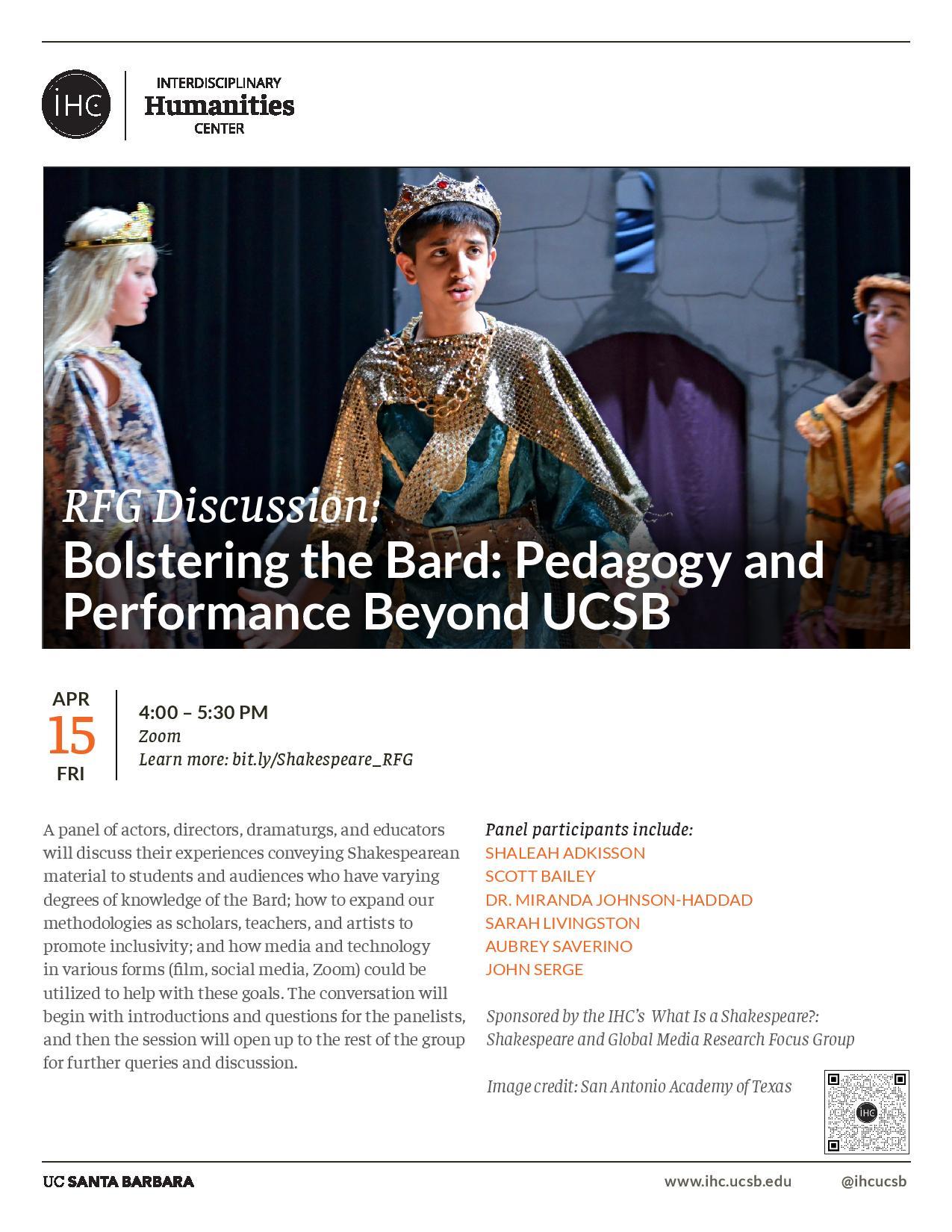Career & Tools
Join the IHC's research focus group "What is a Shakespeare: Shakespeare and Global Media" for an event on Friday, April 15 from 4-5:30pm: "Bolstering the Bard: Pedagogy and Performance Beyond UCSB." An invited panel of knowledgeable actors, directors, dramaturgs, and educators will discuss experiences in conveying Shakespearean material to students and/or audiences with varying degrees of knowledge of the Bard. Read on to learn more!
You are invited to join the Interdisciplinary Humanities Center's research focus group What is a Shakespeare: Shakespeare and Global Media for an online event on Friday, April 15 from 4-5:30pm titled "Bolstering the Bard: Pedagogy and Performance Beyond UCSB." Register here.
This pedagogy event centers on an invited panel of knowledgeable actors, directors, dramaturgs, and educators to discuss experiences in conveying Shakespearean material to students and/or audiences with varying degrees of knowledge of the Bard, how to expand our methodologies as scholars, teachers, and/or artists to promote inclusivity, and how media/technology in various forms (film, social media, Zoom, etc.) can be utilized to help with these goals. The conversation will begin with introductions and a few questions specifically for invited guests, and then the session will open up to the rest of the group for further queries and discussion.
About What is a Shakespeare?: Shakespeare and Global Media
"What Is a Shakespeare?: Shakespeare and Global Media" is an interdisciplinary group of graduate students and faculty focused on investigating the notion of 'global Shakespeare.' The group is interested in understanding both the ways that Shakespeare has been adapted in a global context and how an emphasis on Shakespeare has obscured other valuable insights culturally, socially, theoretically, and politically. As a versatile team of scholars and practitioners, they are invested in rethinking Shakespeare and his current global resonances in a multitude of intersecting ways. The group is not simply interested in theoretical considerations of how one might interpret global Shakespeares, but also how one might perform, experience, or teach global Shakespeares.
